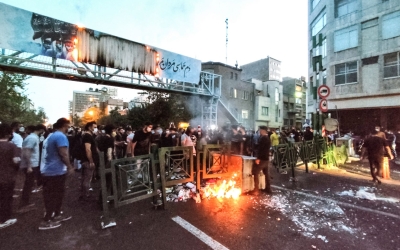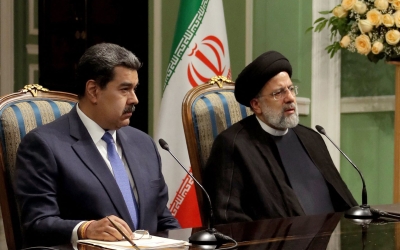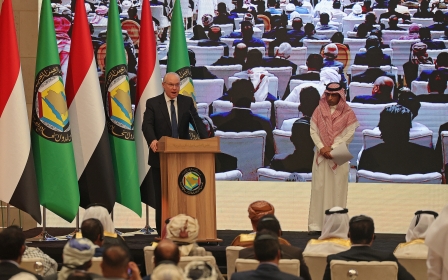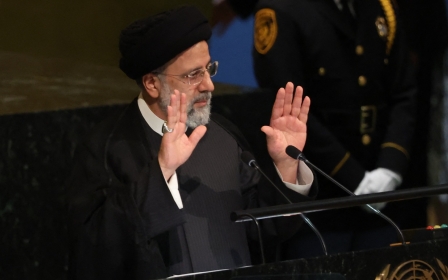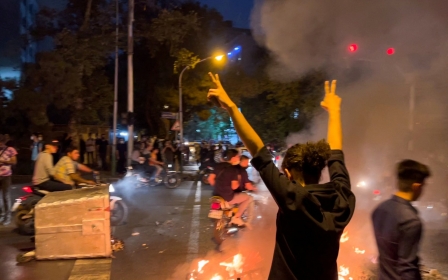Iranian press review: Reformist politicians demand removal of 'morality police'
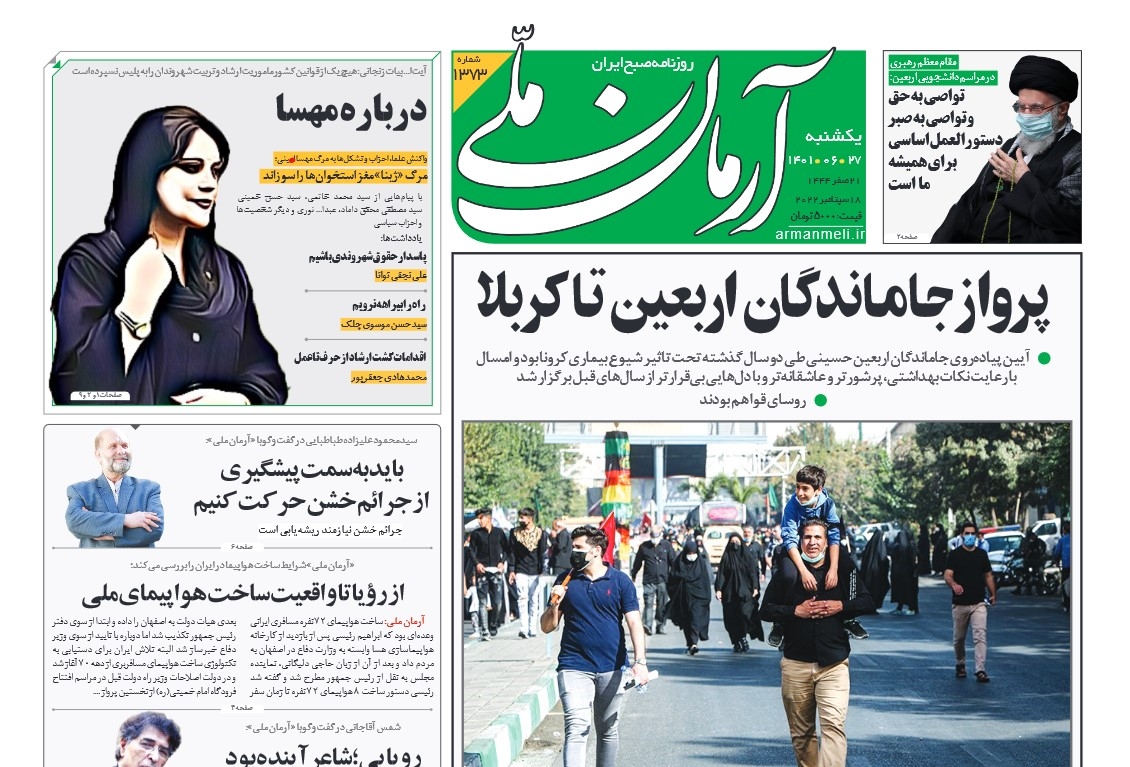
Legislators urge 'morality police' shut down
Reformist politicians have publicly demanded the elimination of Iran's "morality police", known as Gasht-e Ershad, while protests continue in Iranian cities following the death of Mahsa Amini.
Amini, a 22-year-old Kurdish woman, died in hospital after being arrested in Tehran last week by the special police unit that monitors women's clothing and looks out for "bad hijab".
Since her death, which many have blamed on police abuse, reformist media outlets have openly criticised the restrictive laws that mandate women wearing headscarves, breaking an unwritten taboo on discussing the subject.
Since June, conservative President Ebrahim Raisi's administration has implemented restrictive measures on women's dress.
New MEE newsletter: Jerusalem Dispatch
Sign up to get the latest insights and analysis on Israel-Palestine, alongside Turkey Unpacked and other MEE newsletters
On Tuesday, Shargh and Etemad daily, two leading reformist newspapers, demanded on their front pages the removal of the police branch responsible for implementing sharia laws related to women's hijab.
Under the headline "the demand for shutting off Gasht-e Ershad", Etemad published an open letter by a former legislator, Elias Hazrati, in which he urged President Raisi to end the Islamic morality police operations.
"I demand that you, commandingly, order the removal of Gasht-e Ershad to heal the pain of millions of Iranians," he wrote.
"According to many lawyers, the formation of this police branch has no legal basis."
Meanwhile, in a speech to the country's parliament, Behzad Rahimi, a legislator from the Kurdish city of Saqqez, Amini's hometown, denounced the police for the harsh methods of dealing with what authorities considered inappropriate hijab.
"Gasht-e Ershad has always been a source of stress for our women," ISNA news agency quoted Rahimi. "Gasht-e Ershad squashes human dignity, and we must respect the public demands, urging a revision in [their activities]."
At the same time that ordinary Iranians and reformist politicians have voiced their anger against the Islamic "morality police", conservative outlets labelled the anti-hijab protests as a "disorder" organised by "foreign enemies".
"The sad incident of [Amini's death] has opened the way for the anti-revolutionary and separatist forces to implement their ominous scenarios," the state-owned Iran daily wrote.
65 Russian companies to sign deals with Iran
A 100-member Russian delegation of business people entered Iran on Monday to sign commercial and cooperation agreements with Iranian firms to boost economic ties between the two countries.
The Tasnim news agency reported that the Russian delegation represented 65 companies, active in telecommunication systems, energy, food and agricultural industry, aquaculture, medicines and recycling.
Tasnim wrote that Russia had organised 10 other business delegations to Iran to increase trade volume between Moscow and Tehran.
In August, the two countries began trading in their currencies under the Russian Central Bank's Mir system instead of using the American dollar.
Since the beginning of the war in Ukraine, Russia has increased its backing to sanctions-hit Iran, vowing to support the country's outdated industry and troubled economy. During the past decade, Iran's oil and gas industries, as well as critical infrastructure, have been severely damaged under sanctions imposed by the US.
Iran boosts Venezuelan refinery's productivity
Fars news reported that collaborations between Iran and Venezuela had borne fruit, and according to one unnamed source the capacity of one oil refinery in Venezuela had increased fivefold, from 10,000 to 15,000 barrels per day to 55,000 to 90,000.
The source did not provide any detail about the particular refinery in Venezuela, or since when Iran had been assisting its ally in Latin America to increase petrochemical production.
"This refinery is also a client of Iran's oil. And the oil exports have increased to other refineries [in Venezuela] along with exporting technical support and knowledge," the source was quoted as saying.
Hadi Beiginejad, a member of the energy commission in Iran's parliament, said that based on new contracts, Iran had helped Venezuela to repair and maintain its outdated refineries. In return, Caracas would buy Iran's oil to be processed in those refineries.
"Our oil sales have been limited, but we can sell other products from oil. So buying shares or investing in other countries' refineries is highly important for us," Beiginejad was quoted as saying.
In August, officials revealed that Tehran had increased its oil exports by investing in "cross-country refineries" in Iraq, Syria, Lebanon and Venezuela.
Due to US sanctions on Iran's oil, gas and petrochemical exports, Tehran has invested in the oil industries of friendly countries to sell its products to those refineries, labelled by officials as "cross-country refineries".
*Iranian press review is a digest of news reports not independently verified as accurate by Middle East Eye.
Middle East Eye delivers independent and unrivalled coverage and analysis of the Middle East, North Africa and beyond. To learn more about republishing this content and the associated fees, please fill out this form. More about MEE can be found here.


